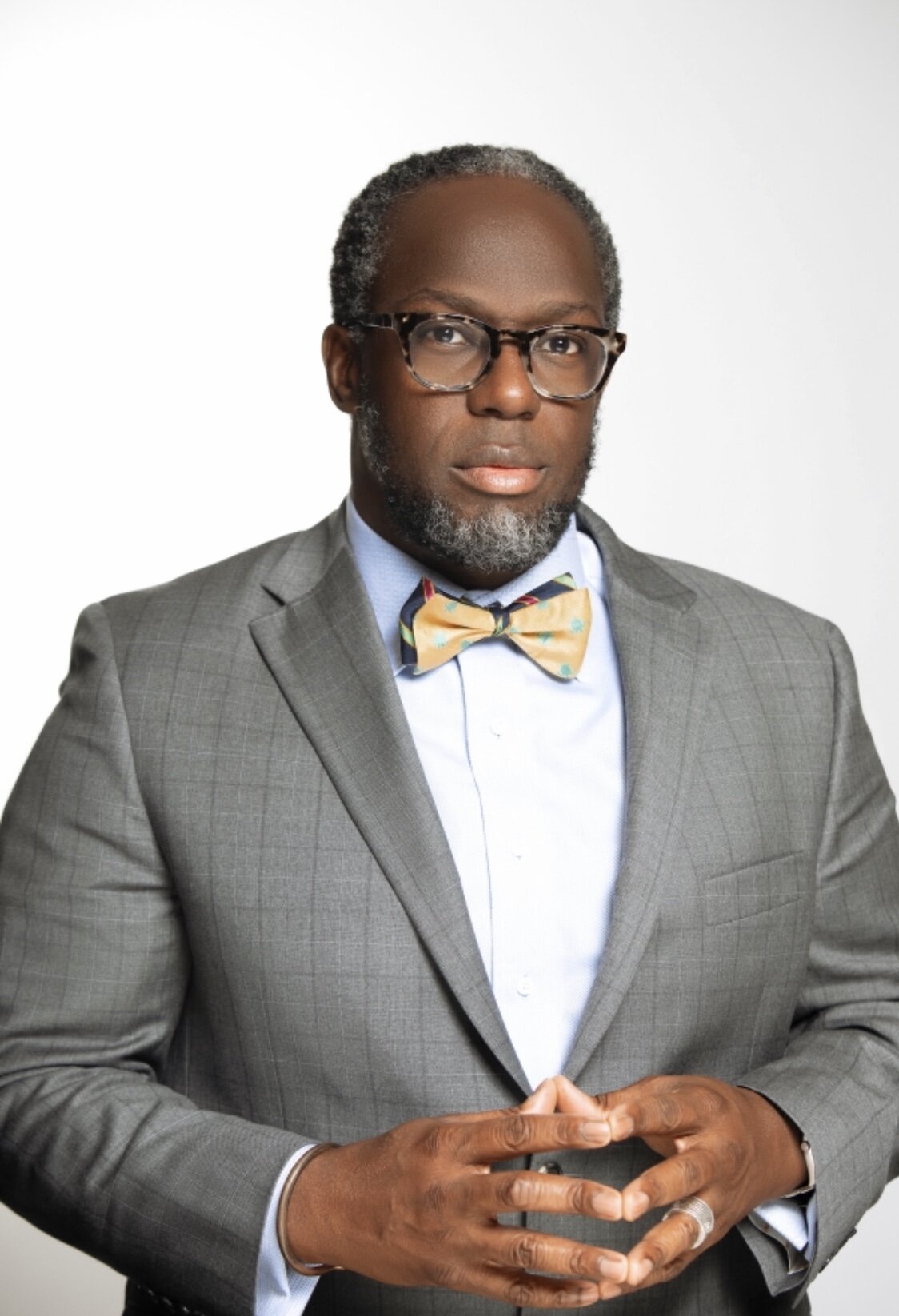
Click PLAY to listen or DOWNLOAD to save on your device.
Dr. Hotchkins offers a powerful book that talks about how to tackle racial exhaustion while understanding the value of self-introspection. Specifically, he explores how to be bold when addressing your life challenges.
Bryan is known for his stunning wit, approachability, and Nerdy humor. But even he has needed to overcome race-based anxiety. In adjusting to the beginnings of the COVID19 pandemic and repeatedly watching public violence against people of African descent, he realized that internalizing sorrow was unhealthy. Consequently, he nearly left his job as an assistant professor in order to cope with suffering from his diagnosed racial battle fatigue. And, as he shares in My Black is Exhausted. Forever in Pursuit of a Racist-free world Where Hashtags Don’t Exist. He was not alone.
We all experience fear, uncertainty and anxiety concerning race, talking about race and the possibility engaging in racial interactions. Sometimes we are afraid of not having the correct answers, sounding ignorant or being perceived as disinterested. Maybe you want to stand in solidarity with others who have been threatened due to their holding a certain racial identity, but don’t know how.
In order be whole, we must learn how to deal with our racial exhaustion, track it and consider productive ways that are helpful to our existence. To admit that you are racially exhausted is the first step!
With transparency and honesty, Dr. Hotchkins walks us through his personal journey while explaining how it prepares others to amplify their voices when experiencing racism.
The point is to pursue a racist-free world. This book shows you how to do so and empowers you to do it!
CHAPTER 10: #DisruptedCelebrations (BOOK EXCERPT)
“No Justice. No Peace,” is the template chant of Black people who repeatedly march in the streets of numerous cities after a member of our community is murdered, killed or otherwise. However, hearing “Hands Up. Don’t Shoot” hit a little different. What does it mean to be unarmed and Black in the United States of America? When the naked bodies of Black people are framed as weaponized, does that warrant the “justifiable” usage of excessive force? To what extent are Black folk expected to navigate the double pandemic of COVID-19 and antiblack racism? How does one do it successfully? What is a win?
Questions.
Subjective answers are fleeting.
My son, Osiris and I have matching tees that read “Hands Up. Don’t Shoot.” In the fall of 2015, we took a picture in the back yard of our home wearing the tees, hands up. Each time I look at the photo, his innocence is appreciated. He too was a senior in high school, but unlike Mike Brown lived to graduate. He is now 24. I am grateful for every opportunity that I am afforded to celebrate his life. The shared tees pictured represent an obvious reminder that Black life, although strong, can be interrupted.
It is rumored that when Tracy Martin, father of Trayvon, and Michael Brown, Sr. met, Tracy whispered “welcome to the club that none of us wants to be a member of....” I never want to be a member of that club. The statement is so final. It is a fatherly acknowledgment that a Black child was erased by the hands of another and absolutely nothing can be done in order to facilitate a resurrection.
Defenseless parenthood is a practice Black families have become oddly familiar with for centuries. When news of Florida A&M student Jamee Johnson (22), who was shot during a traffic stop in 2019, surfaced, I pondered yet again, “how can I protect my children when they are not in my presence?” There is nothing that makes me feel comfortable with this consideration, nothing.
If only the powerlessness Black parents expe- rience when conducting press conferences to defend their children, who are frequently slandered posthu- mously, could be replaced with the joy of attending their weddings, graduations, Angel investor meeting or even receiving a just because forehead kiss. When have Black folks ever been allowed to fully celebrate the victories of ourselves in relevant ways where there is no interruptive “All Lives Matter” response?



